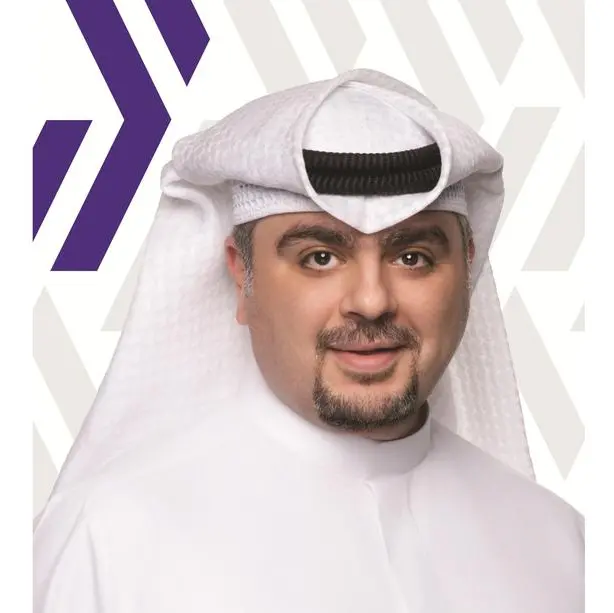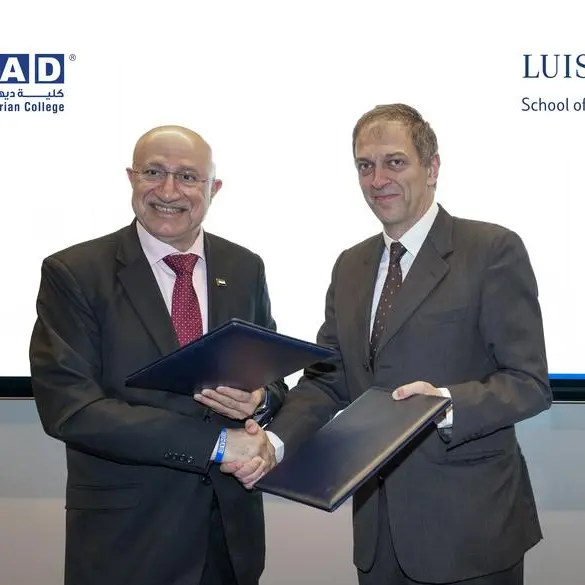- Local and hard currency issuance from MENA reached USD 145 billion in 2018
- Fund managers see regional bonds as attractive compared to EM peers; financial sector subordinated papers prove popular
- Economic reform and diversification, index inclusion and attractive risk premia can lead to higher portfolio allocation
Dubai, United Arab Emirates: MENA fixed income instruments provided a relative oasis of calm against volatile market moves in 2018. MENA hard currency bond and Sukuk issuance reached USD 84 billion in 2018, with demand for new issues remaining high as regional debt was oversubscribed 2x -2.5x, according to a white paper by Emirates NBD Asset Management, KAMCO Investment Company and Fisch Asset Management. Investor appetite is likely to remain strong in 2019, as GCC bonds are included in the JP Morgan EMBI index series and regional governments sustain ambitious reform agendas. The co-authored paper, “MENA debt: an evolving world for fixed income investors”, provides an in-depth look at regional fixed income in 2018 and provides an outlook for 2019.
Financial markets in the MENA region are evolving at a fast pace and more outward-looking policies aimed at integration with global markets are increasing the breadth of financial instruments traded in the region, giving international and local investors compelling reasons for exposure. The case for fixed income portfolio allocation to MENA is supported by the growing share of global GDP represented by the region, which for the GCC is expected to increase from 1.8% in 2015 to 2.0% in 2019, while its share of emerging markets GDP is expected to increase from 4.7% to 5.0%.
Faisal Hasan CFA, CBDO & Head of Investment Research at KAMCO Investment Company, commented:
“Regional gross government debt as a percentage of GDP increased from 29.7% in 2014 to 44.4% in 2018, after a series of issuances. Fiscal deficits for most MENA countries have been the reason for an increase in government debt, and this trend is expected to continue in 2019 – providing a fresh set of opportunities for investors. Reforms being implemented across MENA make it an attractive destination for global investors - spending on infrastructure remains a priority for policymakers and expanding the non-oil sector to diversify economies away from oil dependence has received support from almost all governments in the region.”
Less than a month into 2019 the GCC has already delivered USD 9.1 billon in issuance from both sovereigns and corporates, including the Saudi sovereign, First Abu Dhabi Bank (Sukuk) and Dubai Islamic Bank (AT1), setting the scene for the rest of the year. In addition, there are market-wide expectations that Saudi Aramco will issue debt in 2Q19 to fund its SABIC stake acquisition.
The paper also highlights that, while regional bonds look attractive on a ratings-adjusted basis against other emerging markets, there are a range of important considerations for investors: these include geopolitical uncertainty; possible rating downgrades, although in the case of most sovereigns this is mitigated by diversification initiatives; increased supply carrying the risk of a glut outstripping demand; and the region’s over-reliance on oil as a revenue source.
Parth Kikani CFA, Director Fixed Income at Emirates NBD Asset Management, said:
“Last year, GCC fixed income provided a safe haven during a sustained EM sell-off period. For 2019, we think risks are more balanced, and investors will need to be more discerning in credit selection. While risks stem from further oil price volatility, increased issuance and geopolitical uncertainty, investors may benefit from attractive risk premiums, improving fundamentals and the benefits of index inclusion leading to efficient price discovery. Moreover, with most GCC currencies pegged to the US dollar, this reiterates an attractive relative risk premium amid weakening emerging market FX rates and a stronger US dollar.”
Furthermore, financial sector subordinated papers are especially attractive for investors. These offer relative value as they benefit from unique features including no hard capital ratio triggers, substantial ownership stakes from GCC sovereigns, the absence of a taxpayer base that reduces moral hazard in the event of any pre-emptive capital injections and typically high distributable profits that protect against coupon skips. Given easy access to capital markets, issuers typically call issues on the first call date, so extension risk is heavily discounted, offering relative value to investors.
Philipp Good, CEO and Head of Portfolio Management at Fisch Asset Management, concluded:
“An important driver for investors, whose demand encourages new supply, has been a widening of spreads as a consequence of rising interest rates in the US. Until a new equilibrium in the rate market is found, emerging markets remain attractive alternatives for allocation, with GCC countries among the most appealing of all. Most countries are pushing their reform agendas, and the balancing of the pace of reform will be one of the key drivers for stability in the region. Meanwhile, oil price performance remains crucial, and a key driver for credit.”
Default risk in the GCC remains low despite volatility in oil prices. The GCC region has seen very few defaults or restructurings compared to broader emerging markets. Large government reserves – in the form of Sovereign Wealth Funds (SWFs) – offer support in times of distress and provide a liquidity cushion that can reduce default risk, which is considered a key differentiator from emerging market peers.
-Ends-
About Emirates NBD Asset Management
Emirates NBD Asset Management Limited (Emirates NBD Asset Management), established in the Dubai International Financial Centre and regulated by the Dubai Financial Services Authority as a Category II Firm, is the wholly owned asset management business of Emirates NBD Bank, one of the largest banks by assets in the MENA region. Emirates NBD Asset Management provides a wide range of investment solutions, from in-house managed public funds to tailor-made discretionary solutions. It manages funds across a variety of asset classes, including MENA equity and global fixed income, global risk profiled solutions, UAE real estate, and a wide range of Shari'a compliant instruments, structured to cater for diverse risk appetites.
Each of the Emirates NBD Asset Management managed funds are currently domiciled in either Jersey (regulated by the Jersey Financial Services Commission) or Luxembourg (regulated by the Luxembourg Commission de Surveillance du Secteur Financier). As at 30 December 2018, Emirates NBD Asset Management had assets under management of approximately USD 4.1 billion.
About KAMCO
KAMCO Investment Company K.S.C (Public) is a premier investment company based in Kuwait. The Company is one of the leading investment firms in the Gulf region in terms of assets under management (AUM), and is regulated by the Capital Markets Authority - Kuwait. Established in 1998 and listed on the Boursa Kuwait in 2003, KAMCO is a subsidiary of United Gulf Bank (UGB). In 2018, KAMCO acquired a majority stake of 69.528% in Global Investment House K.S.C.C. (“Global”). The Company has established itself as a regional leader in providing innovative products and services to its clients, enabling it to increase AUM to over USD 9.5 billion (as of 30 September 2018) and achieve a strong track record of 102 successful investment banking transactions worth around USD 16.1 billion (as of 30 September 2018).
About Fisch Asset Management
Fisch Asset Management is an asset manager specialising in select investment strategies. It offers convertible bond, corporate bond and absolute return solutions. Its objective is to create added value for long-term investors through active management. The company’s core strength lies in its long experience in the fields of credit and momentum. Founded in Zurich in 1994 by two brothers, Kurt Fisch and Dr Pius Fisch, Fisch Asset Management has made a name for itself as an independent asset manager and as a global leader in convertible bonds. The company has 90 employees and manages assets of around CHF 10 billion (USD 10 billion) for institutional investors primarily based in Europe.
As a licensed securities dealer, the company is regulated by the Swiss Financial Market Supervisory Authority (FINMA). Fisch Asset Management is a signatory of the United Nations Principles for Responsible Investment (UN PRI).
The company’s client base comprises 81% institutional and 19% wholesale investors. Fisch Asset Management has an international outlook, which applies to both its employees and distribution channels. The company is increasingly targeting investors from beyond its core market of German-speaking countries. Fisch Asset Management offers mandates as well as mutual fund solutions. For more information: www.fam.ch/en/
Media enquiries
Diana Estupinan
Instinctif Partners
Tel: +971 (0) 55 104 3586
Email: diana.estupinan@instinctif.com
© Press Release 2019Disclaimer: The contents of this press release was provided from an external third party provider. This website is not responsible for, and does not control, such external content. This content is provided on an “as is” and “as available” basis and has not been edited in any way. Neither this website nor our affiliates guarantee the accuracy of or endorse the views or opinions expressed in this press release.
The press release is provided for informational purposes only. The content does not provide tax, legal or investment advice or opinion regarding the suitability, value or profitability of any particular security, portfolio or investment strategy. Neither this website nor our affiliates shall be liable for any errors or inaccuracies in the content, or for any actions taken by you in reliance thereon. You expressly agree that your use of the information within this article is at your sole risk.
To the fullest extent permitted by applicable law, this website, its parent company, its subsidiaries, its affiliates and the respective shareholders, directors, officers, employees, agents, advertisers, content providers and licensors will not be liable (jointly or severally) to you for any direct, indirect, consequential, special, incidental, punitive or exemplary damages, including without limitation, lost profits, lost savings and lost revenues, whether in negligence, tort, contract or any other theory of liability, even if the parties have been advised of the possibility or could have foreseen any such damages.



















